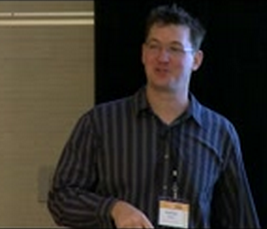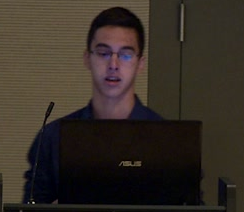CppCon 2014 Generic Programming with Concepts Lite, Part I--Andrew Sutton
 While we wait for CppCon 2015 in September, we’re featuring videos of some of the 100+ talks from CppCon 2014. Here is today’s feature:
While we wait for CppCon 2015 in September, we’re featuring videos of some of the 100+ talks from CppCon 2014. Here is today’s feature:
Generic Programming with Concepts Lite, Part I
by Andrew Sutton
Summary of the talk:
In this talk, I will give an overview of the Concepts Lite language extension for C++ and present examples of its use in design and implementation of real-world generic libraries. Concepts Lite provides the ability for programmers to directly state constraints on template arguments as part of the template declaration. These constraints are predicates which determine whether or not a template argument can be used with that template. Constraints are checked by the compiler at the point of use, meaning that that effectively constrained generic libraries will not suffer from the usual problems of insane diagnostics. Libraries written using concepts will be far more readable and maintainable than the status quo. This talk will focus on generic programming, proposed language features, and their use in building real-world libraries.
Concepts Lite is a forthcoming ISO Technical Specification (TS) aimed at publication alongside C++14. Concepts Lite is implemented in a branch of GCC, which will be made available to the audience for experiments and experience.

 While we wait for CppCon 2015 in September, we’re featuring videos of some of the 100+ talks from CppCon 2014. Here is today’s feature:
While we wait for CppCon 2015 in September, we’re featuring videos of some of the 100+ talks from CppCon 2014. Here is today’s feature: While we wait for CppCon 2015 in September, we’re featuring videos of some of the 100+ talks from CppCon 2014. Here is today’s feature:
While we wait for CppCon 2015 in September, we’re featuring videos of some of the 100+ talks from CppCon 2014. Here is today’s feature: